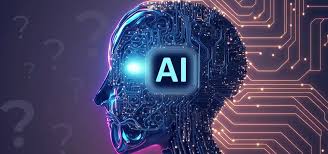Artificial Intelligence (AI) is an transformative technology that is reshaping industries, enhancing daily life, and driving innovation across many disciplines. In its essence, artificial intelligence (umělá inteligence) is the term used to describe the creation of computers that can perform tasks that normally require human expertise. This includes learning, reasoning, problem-solving, perception, and language comprehension.
Types of AI
AI can be classified into two kinds: Narrow AI and General AI. Narrow AI, also known as Weak AI is developed for specific purposes such as voice recognition as well as recommendation systems or autonomous cars. These systems operate with a limited range of capabilities and excel at their designated capabilities, but they are not able to extend beyond their programmed capabilities. General AI, also known as Strong AI, represents a higher-level AI with the ability to understand the world around them, as well as apply intelligence to a variety of tasks at a human-like level. In the present, General AI remains largely theoretical and is a subject of ongoing research.
Key Components of AI
Machine Learning (ML) Machine Learning (ML): A part of AI that involves the training of algorithms using large data sets to identify patterns and then make predictions or take decisions without the need for explicit programming. Techniques like unsupervised learning, supervised learning, and reinforcement-learning are integral to ML.
Natural Language Processing (NLP) This area of AI is focused upon the interactions between human and computer. NLP enables machines to understand interpret, recognize, and produce human language, which is a prerequisite for applications like chatbots, language translation and even sentiment analysis.
Computer Vision Computer Vision: This field examines how computers interpret and make sense of visual data from the outside world. Computer vision is employed to recognize faces, objects detection, and autonomous driving.
robotics AI can be crucial to robotics, as it lets robots perform complicated tasks in a controlled manner. Robotics combines AI with mechanical engineering to make machines that can perform tasks from manufacturing to exploration.
Applications of AI
AI’s applications are numerous and varied. For healthcare, AI algorithms assist in diagnosing illnesses, personalizing treatment plans, and predicting the outcomes of patients. In the finance industry, AI is used for fraud detection, algorithmic trading as well as customer support. Everyday, AI is the basis for virtual assistants such as Siri and Alexa and enhances shopping experiences through personalized recommendations, and optimizes logistics and supply chain management.
Ethical Considerations
As AI continues to evolve and become more sophisticated, ethical considerations are crucial. Questions like privacy of data algorithms, bias in algorithmic design, job displacement, and the risk of misuse of AI technology must be taken care of. Ensuring transparency, accountability, and fairness in AI applications is vital to mitigating these concerns and fostering trust in AI applications.
Future Prospects
The future of AI has enormous potential. Ongoing advances in AI research promise to deliver superior, efficient and integrated solutions in diverse fields. As AI technology advances is certain to play an integral role in shaping the future of our society. It will change the way we work, live and communicate with each other.



